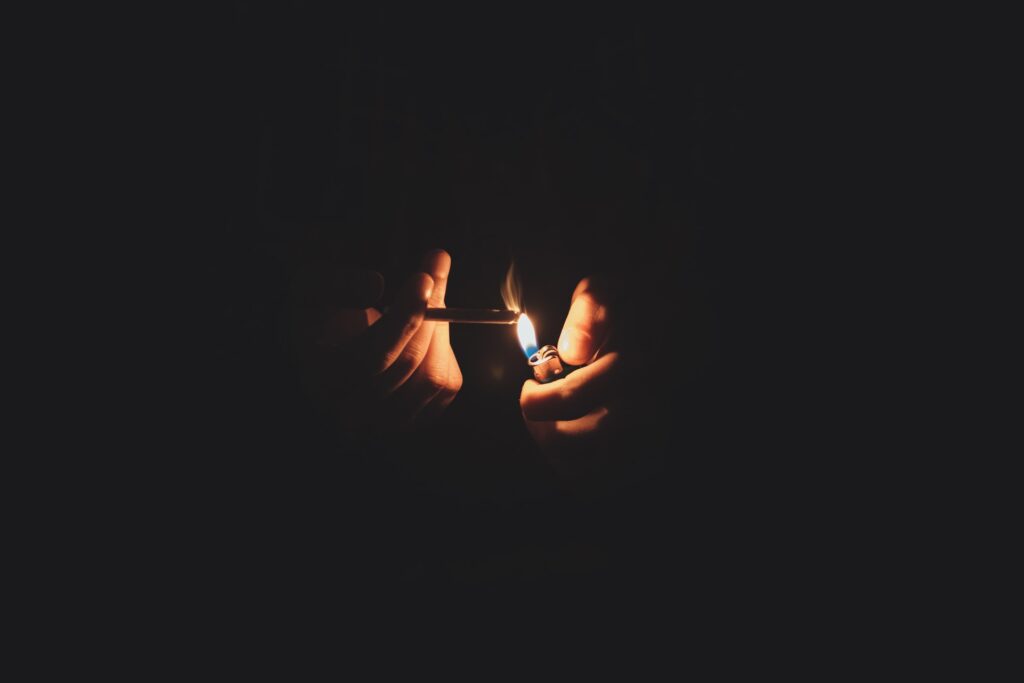Cigarette butts are one of the most common types of trash found on beaches and waterways. The filters, made of cellulose acetate (plastic), don’t biodegrade and release chemicals into the environment that can harm wildlife and humans. A study found that cigarette butts leach chemicals into the aquatic ecosystem that are deadly to fresh and saltwater fish species. These chemicals seep into soil and are carried by storm drains to rivers, lakes, and oceans.
Toxic Chemicals
Cigarette butts litter, which are made of cellulose acetate (a type of plastic), do not biodegrade in the environment and instead release a cocktail of chemicals that are toxic to wildlife. Cigarette butts also contaminate soil, waterways, and beaches and poison fish, birds, and other wildlife that mistake them for food. When cigarette butts are left carelessly on the ground, they seep into drains and are carried by storm sewers to rivers and oceans. The toxins trapped in butt filters leach into waterways and are poisonous to fish and other aquatic microorganisms at concentrations as low as one butt per liter of water. Despite efforts by many cities and states to raise public awareness about the environmental impact of cigarette butt litter and to increase access to trash bins, smokers continue to litter an astounding amount of cigarette waste. Research consistently shows that cigarette littering rates vary between 45-92%. In addition to being an unsightly eyesore, cigarette butts clog streets and sidewalks and pose fire hazards when burned. The butts also contaminate our beaches, impede water flow and choke out habitat. They are a significant cause of forest fires and waste tax dollars spent on cleanup and disposal. A cigarette litter abatement fee collected at the point of sale and refunded when the cigarette is returned could help reduce this problem. Still, such proposals are being met with ferocious opposition from the tobacco industry.
Water Contamination
Cigarette butts contain toxic chemicals that are bad for the environment. They are one of the most common sources of water contamination worldwide. Dropped or flicked onto beaches or streets, they quickly float away and are carried by storm drains that empty directly into lakes, rivers, and streams. They also leach chemicals such as nicotine, formaldehyde, and heavy metals into the surrounding soil and waters, including arsenic, chromium, and lead. They also pose an ingestion, choking, and poisoning risk for wildlife that mistake them for food. Cigarette filters are made of cellulose acetate, a plastic that does not biodegrade. While ultraviolet light from the sun can break down the filter into smaller pieces, it takes many years for the toxic material to disappear. Cigarette butts are a leading source of plastic litter in U.S. beaches and rivers, lakes, and streams, accounting for 1/3 or more of all the trash collected at some coastal sites. In a recent study of 7532 college-aged smokers, we found that people who believe (correctly) that cigarette butts are not biodegradable are less likely to have ever tossed a butt on the ground or to have done so in the past month. They are also more likely to carry a personal pocket ashtray and to regularly dispose of their butts properly.
Birds & Animals
Cigarette butts are often found littered on roadsides, sidewalks, parks and beaches. Over 9.7 billion cigarette butts are polluting roadways, rivers, and waterways each year. While cigarette butts are less common than other types of litter, they still pose significant harm to the environment. Whether they are flicked onto beaches or dropped in parks, the cigarette’s plastic filters are carried by rain and stormwater runoff into drains and ultimately into oceans, lakes, and streams. Because they don’t biodegrade, these butts accumulate on shorelines and at the bottom of bodies of water. When ingested by humans or marine life, they can choke an animal or poison them with toxic chemicals. Infants are particularly at risk of this kind of exposure, as they are indiscriminate eaters and can swallow discarded butt waste. The CDC reports that each year, poison control centers receive thousands of calls from children who have eaten discarded cigarette butts or other tobacco products. Even when tossed in garbage cans, butts are not fully biodegradable and leach toxins into the soil and water. This toxic legacy of cigarette use costs our planet in many ways, but the most effective way to reduce it is by eliminating smoking. Then, we can protect people and animals from the harm caused by this litter.
Human Health
Cigarette butts may look like white cotton, but they’re made of cellulose acetate—a type of plastic. They’re one of the ten most common types of plastic littering our oceans, and they don’t biodegrade; instead, they photodegrade, breaking into smaller and smaller pieces over time until they reach the bottom of the sea. While most people recognize that cigarette butts are litter, few understand the full range of environmental harm they cause. These butts contain thousands of chemicals and toxins that continue to leach from them after they’re discarded. They poison ocean water, pollute beaches and parks, and threaten the health of animals that eat them. A recent study found that cigarette butts make up over half of the trash collected at coastal/urban cleanup events. They are also the most commonly littered item in outdoor public spaces, including streets, parking lots, retail areas, and storm drains. The survey asked participants to report how many butts they tossed on the ground or threw out their car window in the past 24 hours. Eight variables showed significant relationships, with being bothered by cigarette butts and considering them to be litter as the most important predictors of how many butts were improperly disposed of. Hispanic participants were more likely to be bothered by cigarette butts, and those who carried a pocket ashtray were more likely to consider them litter.







